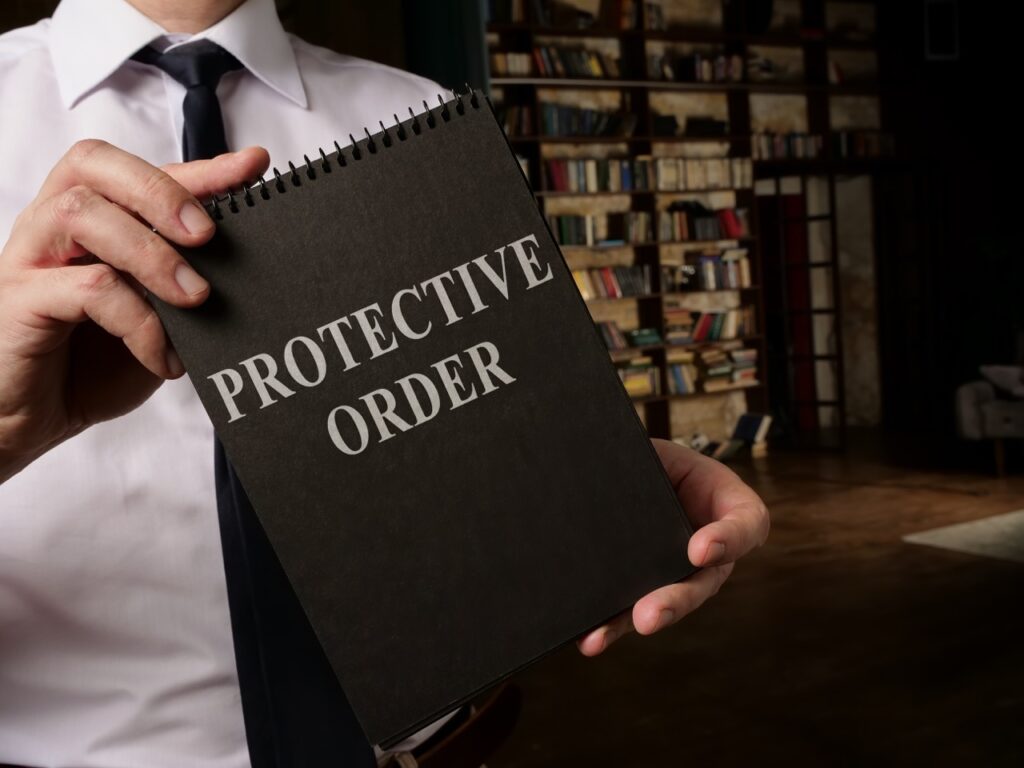A restraining order is a legal order that is issued by a court in order to protect a person from being abused, threatened, stalked, harassed, or assaulted by another individual. The person who is seeking protection from the abuser is known as the “protected person.” The individual who is abusing, threatening, stalking, harassing, or assaulting the protected person is known as the “restrained person.”
A restraining order can also be issued in order to protect property from being damaged or destroyed by another individual. In this type of situation, the owner of the property would be the protected person, and the restrained person would be the individual who has been damaging or destroying the property.
Civil vs Criminal Restraining Orders
There are different types of restraining orders, but they all have one thing in common: they are meant to keep the victim safe from harm. Each state has its own laws about restraining orders, so it is important to understand the laws in your state before you file for a restraining order. For questions regarding filing a restraining order in Utah, give Rulon T. Burton and Associates a call today.
Civil Restraining Orders
A civil restraining order is a court order that requires the abuser to stop the abuse or face legal consequences. Civil restraining orders are issued by a judge in civil court. They are usually issued after a hearing where both sides can present evidence and argue their case.
Criminal Restraining Orders
A criminal restraining order is a court order that is issued as part of a criminal sentence. Criminal restraining orders are issued by a judge in criminal court. The abuser must obey the terms of the criminal restraining order or face additional criminal charges.
The Process for Obtaining a Restraining Order
To obtain a restraining order, you will need to file a petition with your local court. The petition must contain specific information about what the restrained person has done that has caused you to fear for your safety.
Once the petition has been filed, a judge will review it and decide whether or not to issue a temporary restraining order (TRO). If a temporary restraining order is issued, it will only be in effect until a hearing can be held. At the hearing, both you and the restrained person will have an opportunity to present evidence and testimony. After considering all of the evidence that has been presented, the judge will decide whether or not to issue a permanent restraining order.
A permanent restraining order can last for up to five years. However, it is important to note that a permanent restraining order can be terminated early if both parties agree to it.
If you are granted a restraining order, you must make sure that you keep a copy of it with you at all times. You should also give copies of it to any law enforcement agency that has jurisdiction over where you live and work, as well as any school that your children attend.
What Happens When a Restraining Order is Violated
It is important to note that violating any provision of a restraining order is considered to be a crime. The penalties for violating a restraining order in Utah include:
First Violation
- Class A misdemeanor
- Up to 364 days of jail time
- Fines up to $2,500
Subsequent Violation(s)
- Third-degree felony classification
- Up to five years in prison
Violating a civil restraining order can result in fines, jail time, or both. Violating a criminal restraining order can result in additional criminal charges being filed against the offender. In some states, violating any type of restraining order can be considered grounds for an arrest warrant to be issued.
Why Do People Get Restraining Orders?
Utah courts have requirements for obtaining a restraining order. Requirements for a temporary restraining order (TRO) in Utah include:
- An underlying case already exists in court (such as divorce or custody)
- Proof that harm will be caused if the TRO is not issued
- Proof that the TRO will not be against the public interest
If there’s evidence that a child is in imminent danger, or a landlord needs to protect their property from a disgruntled tenant, a TRO might be the best move to protect them from abuse. Contact Burton & Associates if you need assistance moving forward with a restraining order in Utah.
